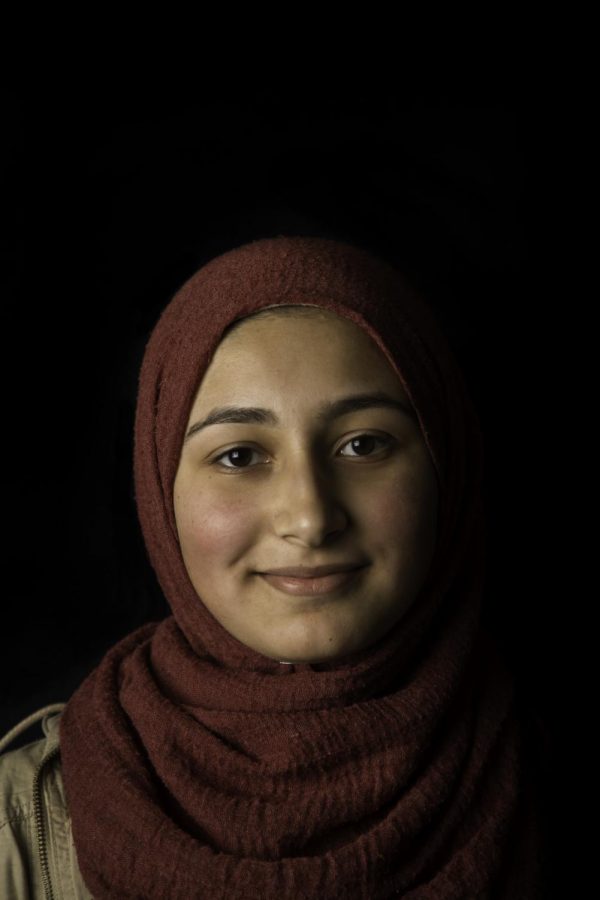Is Eid Equal?
Throughout the school year, students and staff receive time off of school for different religious holidays: in the fall for Rosh Hashanah and Yom Kippur; in the winter for Christmas; and in the spring for Good Friday and Easter. However, one religion’s holidays are not recognized: the religion of Islam.
Overview on Eid
In Islam, there are two main holidays: Eid al-Fitr and Eid al-Adha.
Eid al-Fitr occurs after the month of Ramadan, the Islamic holy month of fasting, and directly translates to “the festival of the breaking of the fasts.” The day is devoted to celebrating Muslims’ hard work throughout Ramadan.
The second holiday, Eid al-Adha, is considered the holier of the two and honors the sacrifices of Ibrahim (Abraham), a messenger and prophet of God. Eid al-Adha falls after a period of hajj, a pilgrimage to Mecca for Muslims and one of the five pillars of Islam.
During both holy days, Muslims typically attend a special morning prayer and sermon and then spend the day with their family and friends, as well as give back to the less fortunate. Islam follows a lunar calendar, and because of this, the holy days change from year to year, shifting approximately 11 days earlier from the year before.
In 2018, Eid al-Fitr will occur in the summer, time from the evening of Thursday, June 14, to the evening of Friday, June 15. Eid al-Adha will commence during the evening of Monday, Aug. 20, and end in the evening on Tuesday, Aug. 21. For many Muslims still in school, this poses a problem; they must make the decision to miss school to celebrate this important part of their faith or to attend school and miss the celebrations.
The Muslim Holiday Coalition
What started as a petition organized by one student has now grown into 17 students and 23 adults representing more than 11 schools. The Muslim Holiday Coalition, also known as Eid in Lake County, is a movement to get Eid recognized as an official school holiday, meaning that these days would be considered non-attendance days for students and faculty.
Mariam Tolba, LHS senior and founder and president of the coalition, described the coalition as “a way to work together and make a change that will save many Muslims [from] the decision to miss school and fall behind or to miss a very important part of their faith.”
The Muslim Holiday Coalition’s efforts to have Eid recognized as an official school holiday include attending board meetings, social media campaigning and meeting with school, district and county officials. This is all in an effort to extend their voices and reach beyond Libertyville High School, where the movement originated.
Loubna Kiliouine, who is an adult representative for Oak Grove School, became involved through the mosque Tolba attends, called Islamic Foundation North. Kiliouine has two daughters, one at Oak Grove and the other at LHS. She is a part of the coalition because even though there is a possibility that “by the time [the coalition makes] this goal happen, [her] kids will be out of school, [she is] doing this on behalf of every Muslim out there.”
Kiliouine’s family is one of many faced with the difficult decision on how to handle school on Eid: “Some families choose to keep their kids home and don’t send them to school, [while] others choose to send them to school and have their kids miss valuable time with families during [the] holiday. Muslims shouldn’t be faced with that choice. Just like Christmas is celebrated and schools are closed, I would like to not have to worry about my kids missing school because they’re celebrating their holiday.”
Natalie Perritano, a 2017 graduate of LHS currently attending New York University, helped Tolba in the creation and expansion of the coalition. Together, the two of them conducted research on area demographics, established social media platforms and reached out to different administrators.
Unlike Tolba, Perritano is not Muslim. Her involvement, however, was still an easy choice.
“I don’t need to be Muslim to understand that this is a matter of fairness and extending basic rights to all members of Lake County,” Perritano said over the phone.
Why the Holiday isn’t Already Recognized
Neither Eid al-Fitr nor Eid al-Adha are considered official holidays in LHS’s eyes, meaning that students and staff attend school on these days.
The Lake County Regional office works to create a calendar for all of its districts each year. While this calendar is merely a suggestion, it includes start and end dates, as well as breaks and holidays to be observed.
One of the many jobs of Mrs. Roycealee J. Wood, Lake County Superintendent of Schools, is to supervise the creation of this calendar given to all of the schools she oversees.
“School boards in Illinois are very powerful. This is a county where everyone works together and the role of the regional office is just suggestion. It is up to the districts to make choices [such as which holidays to observe],” Mrs. Wood said.
In fact, most decisions regarding the LHS calendar are made at a district level. Dr. Rita Fischer, the Assistant Superintendent of Curriculum and Instruction, is the facilitator of the district’s calendar committee. According to Dr. Fischer, this committee annually reviews the district calendar for approval by the school board and includes educators and community members alike.
As was mentioned before, the regional office sends a calendar to every district, but it is merely suggestion. Jewish holidays, for example, do not appear on the suggested calendar; the decision to make these non-attendance days was made about 10 years ago by the District 128 school board.
“[The decision to make Jewish holidays non-attendance days] was related to the number of student and staff absences that occurred on those holidays. It was deemed to be a disruption to the school day,” Dr. Fischer stated.
Regarding Muslim holidays, the amount of students and staff missing has not been considered enough to warrant non-attendance days.
“[Disruptive absences have] not been something noted of late. We have had students that request that we consider having non-attendance days on those holidays and it has been discussed by the calendar committee, but the absences [have] not been observed as a disruption to the regular school day,” Dr. Fischer said. “There are opportunities, however, to those who have religious holidays that may not be recognized by the school calendar to take those days off as excused holidays, but it is still a regular school day.”
Although Muslim holidays are not school-sanctioned holidays, both Christian and Jewish holidays are. Some see this as unfair, because although Muslims represent a smaller portion of the population, they still make up some of the student body.
In Tolba’s opinion: “Public schools just have so much diversity and we should be respectful of every religion and culture and ethnicity. [Public schools] shouldn’t be partial to certain groups of people.”







